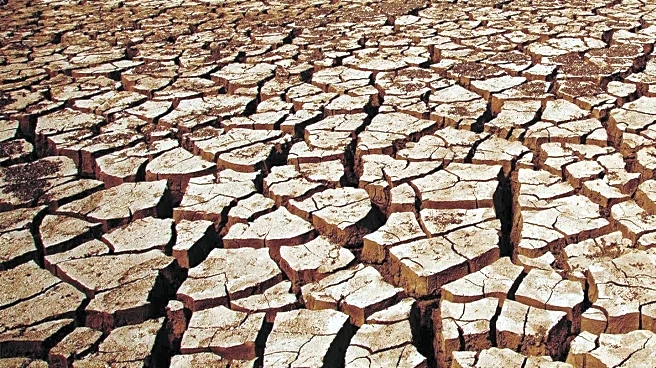What's Happening?
Recent reports highlight the severe health and economic impacts of climate change, with heatwaves and extreme weather events causing significant loss of life and economic disruption. The summer of 2023 was one of the deadliest on record in Europe, with over 61,000 deaths attributed to heatwaves. The economic toll is also substantial, with billions of labor hours lost to heat stress and significant GDP losses in affected regions. The report underscores the increasing frequency and intensity of climate-related disasters, which are expected to displace millions and exacerbate health issues globally.
Why It's Important?
The findings emphasize the urgent need for comprehensive climate action to mitigate the adverse effects on public health and the economy. As climate change continues to drive extreme weather events, the associated health risks and economic costs are likely to increase, affecting vulnerable populations disproportionately. This situation calls for robust policy measures to enhance resilience and adaptation strategies, as well as investments in sustainable infrastructure and renewable energy to reduce carbon emissions and transition to a low-carbon economy.
What's Next?
Governments and international organizations may need to prioritize climate adaptation and mitigation strategies to address the growing challenges posed by climate change. This includes enhancing public health systems, improving disaster preparedness, and investing in sustainable development. The private sector may also play a crucial role in driving innovation and financing climate solutions. Public awareness and advocacy could influence policy decisions and accelerate the transition to a more sustainable future.
Beyond the Headlines
The report highlights the psychological and social impacts of climate change, including increased anxiety and mental health issues. The concept of 'solastalgia,' or the distress caused by environmental change, is becoming more prevalent as communities face the loss of familiar environments. Addressing these emotional and psychological dimensions is essential for building resilient societies capable of coping with the multifaceted challenges of climate change.








